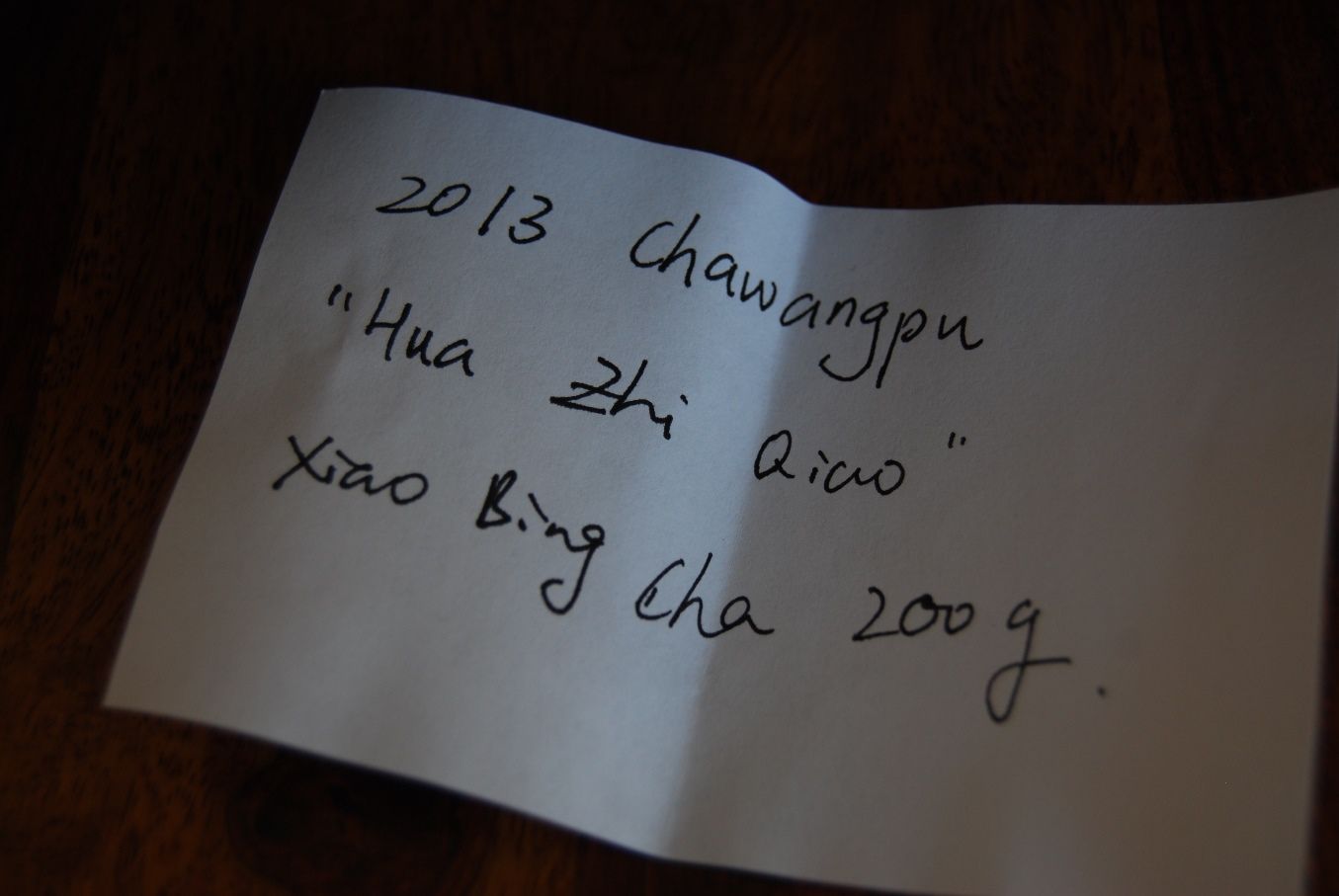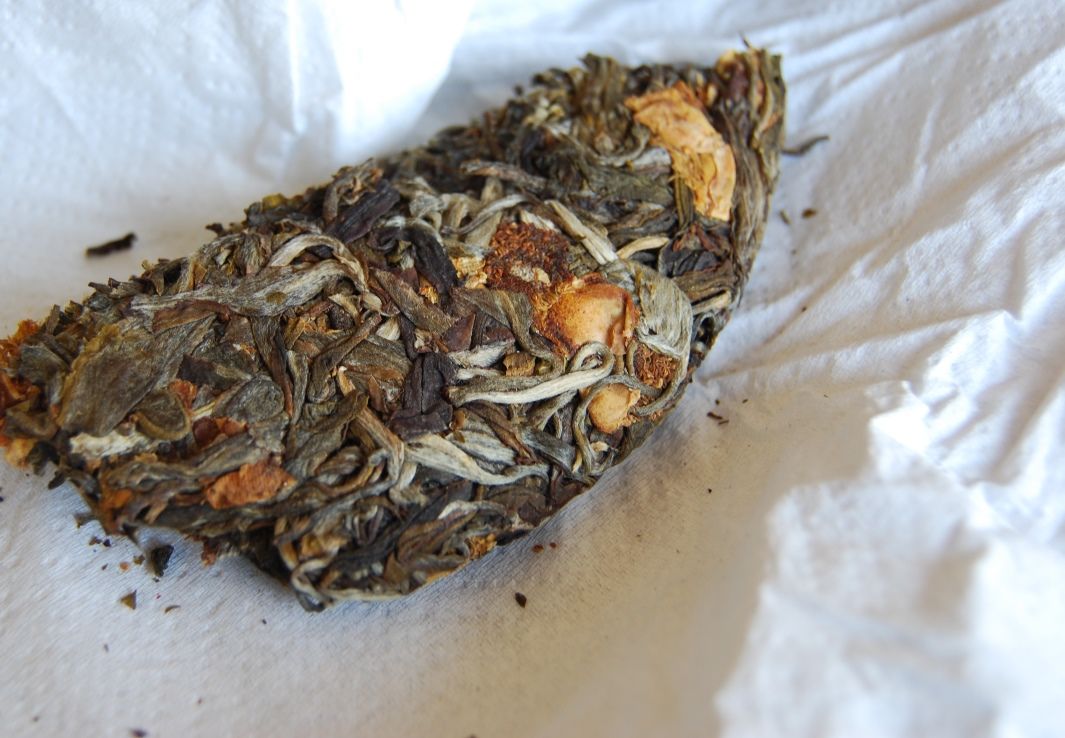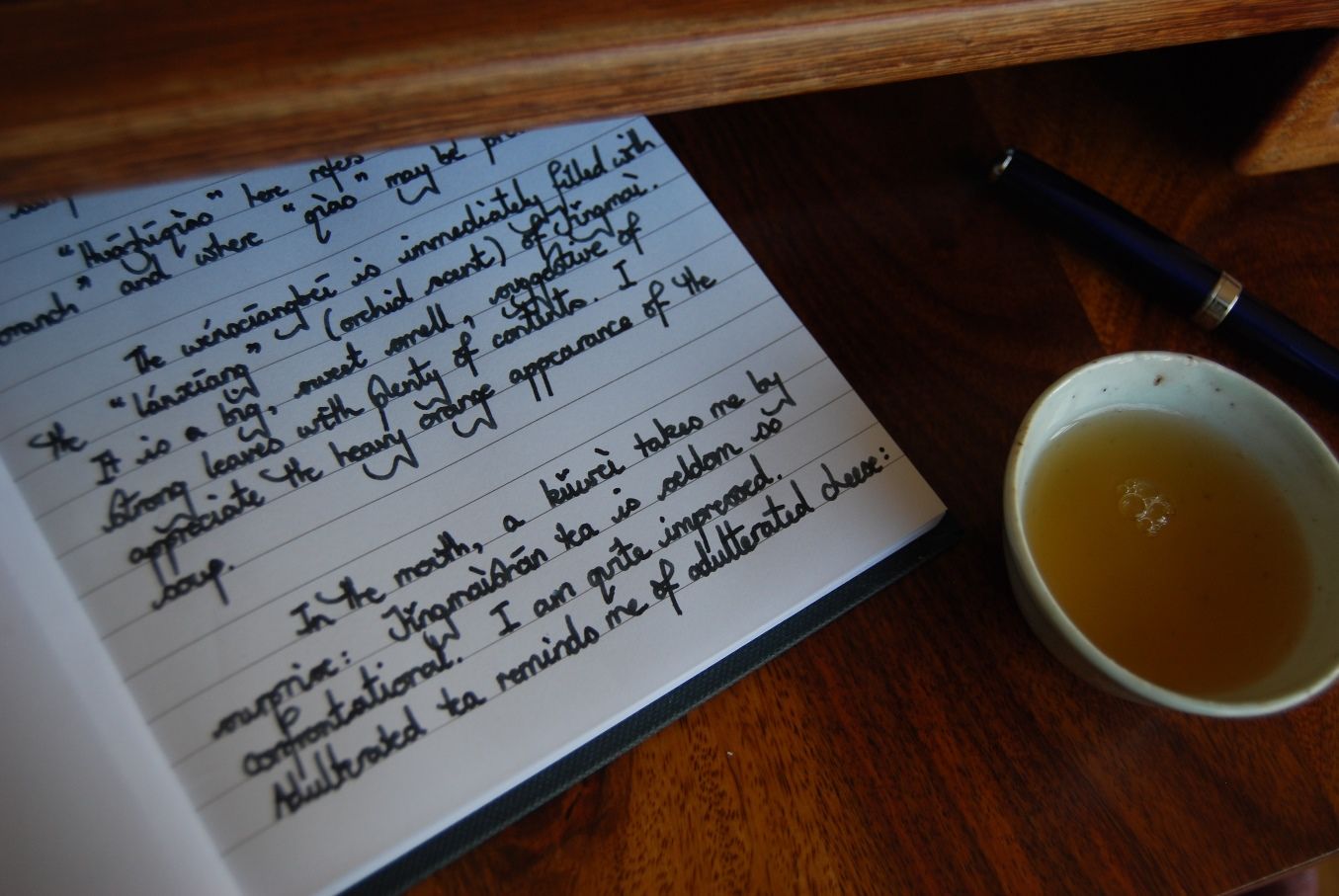It may be true that the road to Hell is paved with good intentions, but it is almost certain that the road to Purgatory is paved with novelty teas. Crab's feet. Bamboo leaves. Being stuffed into a tangerine skin (!). The gang's all here.
You could fill an entire branch of Whittards with such nonsense - indeed, Whittards base a seemingly successful business case on doing just that.
You could fill an entire branch of Whittards with such nonsense - indeed, Whittards base a seemingly successful business case on doing just that.
So, then, let us remain open-minded as we contemplate the potential horrors of the 2013 "Huazhiqiao" from Chawangshop. I have learned to cut The 'Wang a fair degree of slack, because they are one of the few vendors out there hanging onto the "price them reasonably and they will come" business model. It is a model that I like very much. The 'Wang backs up its low prices with some really rather decent tea - they hit the spot between price and rancidity in exactly the right place, for me.
I also totally dig the fact that they have an English "shop" rather than an American "store".
This particular cake is made from springtime Jingmaishan leaves. "OMG", I can hear you utter, as you reach for breath between spasms, "entry-level Jingmai + flowers". However, your paroxysms are, this time anyway, somewhat premature. Lower that pulse, Gentle Reader, calm your elevated blood pressure, and remember that tea-drinkers are like the Fonz. And what is the Fonz? If the collected works of Tarantino have taught us anything, it is that the Fonz is cool.
Somehow, against all the odds, like a proton torpedo finding its way into the thermal exhaust port of a rather large moon battlestation, this horrific tea actually turns out to be really good.
The wenxiangbei [aroma cup] is filled with the prototypical lanxiang [orchid scent] much beloved of Jingmaishan fans the world over. It is a big, sweet scent, suggestive of strong leaves with plenty of contents. I appreciate the heavy orange appearance of the soup.
In the mouth, the kuwei [good bitterness] takes me by surprise: Jingmaishan tea is seldom so confrontational - perhaps why it is so often considered to be "accessible" (where you can, I trust, sense my displeasure at the use of such an adjective).
Adulterated tea reminds me of adulterated cheese: you wouldn't use your best stilton to make the ubiquitous "stilton and apricot" blend that blights so many shops; likewise, you wouldn't use exalted maocha to make a flowery ladyblend - hence the low price. However, that which is here, in the cup, seems honest and strong. Surely, that which is in the cup is all that matters.
The flowers add a pollinated edge which, at the risk of having my testosterone levels brought into question, I find to be quite nice. I am left wondering how many years of aging, if any, such flowers will survive.
Ultimately, this tea turns out to be a little too brash, as comedy would have it. There is a brittle, brassy character to the kuwei in the second infusion and onwards that makes me think of tongue-numbing pesticides. As the brews continue, this brutal and rancid notes prevents the Jingmaishan from reaching me. What a surprise this little fellow turned out to be. At just $15/200g, you might like to try this if you have some plumbing that needs unblocking.
The wenxiangbei [aroma cup] is filled with the prototypical lanxiang [orchid scent] much beloved of Jingmaishan fans the world over. It is a big, sweet scent, suggestive of strong leaves with plenty of contents. I appreciate the heavy orange appearance of the soup.
In the mouth, the kuwei [good bitterness] takes me by surprise: Jingmaishan tea is seldom so confrontational - perhaps why it is so often considered to be "accessible" (where you can, I trust, sense my displeasure at the use of such an adjective).
Adulterated tea reminds me of adulterated cheese: you wouldn't use your best stilton to make the ubiquitous "stilton and apricot" blend that blights so many shops; likewise, you wouldn't use exalted maocha to make a flowery ladyblend - hence the low price. However, that which is here, in the cup, seems honest and strong. Surely, that which is in the cup is all that matters.
The flowers add a pollinated edge which, at the risk of having my testosterone levels brought into question, I find to be quite nice. I am left wondering how many years of aging, if any, such flowers will survive.
Ultimately, this tea turns out to be a little too brash, as comedy would have it. There is a brittle, brassy character to the kuwei in the second infusion and onwards that makes me think of tongue-numbing pesticides. As the brews continue, this brutal and rancid notes prevents the Jingmaishan from reaching me. What a surprise this little fellow turned out to be. At just $15/200g, you might like to try this if you have some plumbing that needs unblocking.
Uberthanks to JT for the session.





No comments:
Post a Comment
(and thanks)